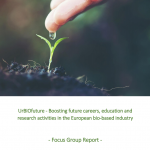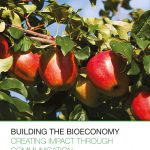BioLinX longread: Project positioning, execution & outcome
BioLinX supported participants in FP7 and H2020 bioeconomy related projects in commercializing their innovative ideas and connects them to markets and regional networks.
BioLinX longread: Project positioning, execution & outcome is the publishable final report of the BioLinX project. It tells the story of the BioLinx project and contains brief/simplified BioLinX project overview and introduction.


